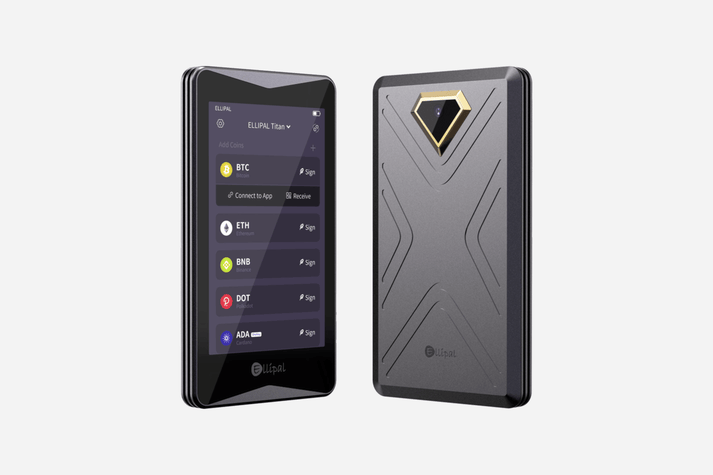Unlocking the Secrets of Crypto Wallets: Discover How They Work and Which One is Right for You!
In the rapidly evolving world of cryptocurrency, the importance of secure storage solutions cannot be overstated. As digital currencies gain traction among investors and users alike, understanding how to safeguard these assets becomes paramount. Enter the crypto wallet, a vital tool that allows users to manage their digital currencies securely. Whether you are a novice looking to dip your toes into the crypto market or a seasoned trader, knowing the ins and outs of crypto wallets is essential. In this article, we will explore what a crypto wallet is, how it operates, and the various types available to help you make informed decisions about your crypto storage needs.

Understanding Crypto Wallets
A crypto wallet serves as a digital interface that allows users to interact with blockchain networks and manage their cryptocurrencies. Unlike traditional wallets that hold physical cash, crypto wallets store public and private keys—essential components that facilitate the sending and receiving of digital currencies. The public key can be shared with others to receive funds, while the private key must remain confidential as it grants access to the wallet's contents. Think of it as a bank account: anyone can deposit money into your account using your account number (public key), but only you can withdraw funds with your PIN (private key). The security and functionality of a crypto wallet are critical for ensuring safe transactions and protecting assets in the volatile crypto market.
How Crypto Wallets Work
At the heart of every crypto wallet is a complex mechanism that operates through cryptographic principles. When you create a wallet, it generates a pair of cryptographic keys: a public key, which is visible on the blockchain, and a private key, which must be kept secret. When you want to send cryptocurrency, the wallet uses your private key to sign the transaction, verifying that you are indeed the owner of the funds being transferred. This signature is then added to the blockchain, ensuring a secure and tamper-proof record of the transaction. Furthermore, wallets interact with blockchain networks to check balances and confirm transactions. Security is paramount; many wallets incorporate advanced measures such as two-factor authentication, multi-signature setups, and encryption to protect against unauthorized access and fraud. A friend of mine who recently started trading cryptocurrencies learned this the hard way after losing access to a wallet without backup. It’s a mistake he won’t make again, emphasizing the importance of security in crypto management.
Types of Crypto Wallets
When it comes to crypto wallets, there are several types to choose from, each with its own advantages and disadvantages. Understanding these can help you pick the right one for your needs.
1. Hot Wallets
Hot wallets are connected to the internet, making them extremely convenient for daily transactions and quick access to funds. They come in various forms, such as web wallets, mobile apps, and desktop applications. However, their connectivity also exposes them to risks, as they can be more vulnerable to hacking and phishing attacks. For casual users who frequently trade or spend cryptocurrencies, hot wallets offer the ease of use that is hard to beat.
2. Cold Wallets
In contrast, cold wallets are offline storage solutions, providing enhanced security for long-term holders. By keeping private keys offline, cold wallets protect users from online threats. Typical use cases for cold wallets include storing large amounts of cryptocurrencies or holding assets for an extended period. They can be hardware devices that resemble USB drives or even paper wallets, which we will cover shortly. Cold wallets are ideal for those who prioritize security over convenience.
3. Hardware Wallets
Hardware wallets are a popular type of cold wallet that combines the security of offline storage with the convenience of easy access. These physical devices store your private keys securely, requiring you to connect them to a computer or mobile device to conduct transactions. While hardware wallets come with a price tag, many users find the investment worthwhile, particularly for long-term cryptocurrency storage. Their robust security features make them a favorite among serious investors.
4. Software Wallets
Software wallets can be either hot or cold, depending on their connectivity. These wallets are typically user-friendly and suitable for beginners. Mobile wallets allow you to manage your crypto on the go, while desktop wallets provide a more robust interface for managing larger sums. They often come with features like built-in exchanges and wallet recovery options. However, users should remain vigilant, as even software wallets can be vulnerable to malware and hacking attempts.
5. Paper Wallets
Paper wallets are a unique form of cold storage where your public and private keys are printed on a piece of paper. This method is immune to online threats, but it does come with its own risks, such as physical damage or loss. Creating a paper wallet requires a careful process to ensure that the keys are generated securely and not exposed to the internet during creation. While they are less convenient for frequent transactions, paper wallets can be a viable option for securely storing cryptocurrencies long-term.
Key Takeaways on Crypto Wallets
In conclusion, understanding crypto wallets is essential for anyone looking to navigate the world of digital currencies safely. Each type of wallet offers unique advantages and caters to different needs, whether it's the convenience of hot wallets or the security of cold wallets. As you consider your options, remember to evaluate your individual requirements, including your trading habits and security priorities. By doing your research and choosing the right crypto wallet, you can safeguard your investments and enjoy the benefits of the cryptocurrency revolution.





